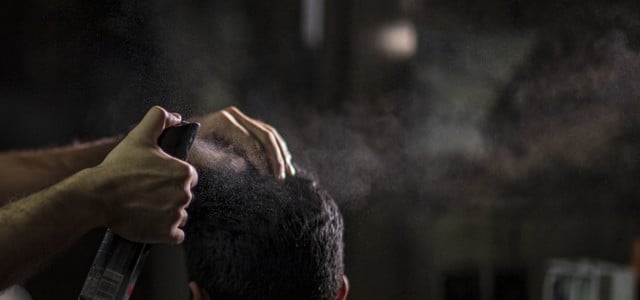Ever wondered whether hairspray is actually good for you or for the environment? Here's a quick guide to everything you need to know and how you can make sustainable choices.
Air pollution is a growing concern in a world fighting against climate change. These pollutants come in many forms, both natural and “man-made” or anthropogenic. Volcanos and wildfires are two of the most common natural air pollutants, however human activity has produced a plethora of new pollutants which have done severe damage to the earth’s ozone. These include emissions from factories, transportation, and volatile chemical products, which include aerosols.
However, since the introduction of various anti-air-pollution measures in major cities across the West, the pollution from transportation has fallen dramatically. However, this has caused domestic air pollutants originating primarily from aerosols to become more of a concern in these areas. In fact, in industrialized cities, these volatile chemical products now constitute around half of air polluting emissions.
This pollution continues to go unchecked since the vast majority of these emissions take place indoors and the individual emissions are so low. However, when accumulated, their impact is significant. Because of this, it’s important to regularly clear the air in your home, as these pollutants can have potentially serious health implications.
Is Hairspray Bad for You?
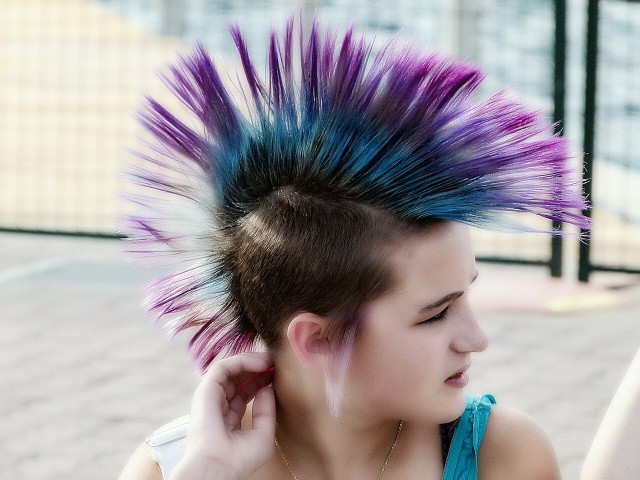
(Foto: CC0 / Pixabay / ArtTower)
In terms of your hair alone, the polymers which make up the holding element of hairspray, when used as directed, have very low toxicity to hair and skin, discounting cases of allergic reaction. It’s more the propellants for these polymers which are of concern when taken into the body, as they have been found to cause respiratory issues, including breathlessness and coughing even when used in well ventilated areas.
For your general health, however, you should try to avoid beauty products that list artificial fragrances as one of their ingredients. This is because there is no legal requirement to disclose which ingredients make up the fragrance of their products. Many big-name cosmetics companies use this fragrance loophole to hide questionable ingredients in their hairsprays. Considering that on average, 92.4% of women use aerosol hairspray with a range of 0 to 7 reapplications throughout any given day, you might want to keep it out of your lungs and off of your skin.
The last ingredient you should look out for in most hairsprays is alcohol. While not at all harmful to your health unless consumed, you should always avoid (or at least question) when your hair products contain alcohol. It won’t cause your hair to fall out, but alcohol dries out hair, causing it to become more vulnerable to breakage and therefore frizz. To avoid this, you should always wash out hairspray before brushing and never sleep with it still on your hair.
Is Hairspray Bad for the Environment?
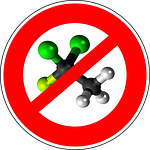


(Foto: CC0 / Pixabay / Cabezon)
Aerosol hairspray has a history of being not environmentally friendly. Until the 70s and 80s, the primary ingredient in most hairsprays was called chlorofluorocarbons (CFCs). At this time, it was discovered that CFCs just so happened to also be one of the leading causes of ozone depletion. This led many countries, including the US, to ban the use of CFCs. Hairspray companies complied and replaced CFCs with hydrocarbons and compressed gases, which were far friendlier in comparison but not much better for the environment as a whole.
These compressed gases emit what are called volatile organic compounds (VOCs). These compounds when dispersed contribute to global warming by becoming groundwater contaminants, which then reenter into the atmosphere as part of the hydrological cycle. This can still be damaging to the ozone layer, although to a lesser extent than CFCs. Damaging enough for concern, nonetheless.
Some sources claim that hairsprays are also damaging to vegetation and say that they may be fatal to plant life over long periods of exposure. However, research into this particular topic is yet to provide solid answers.
Alternative to Aerosol Hairsprays
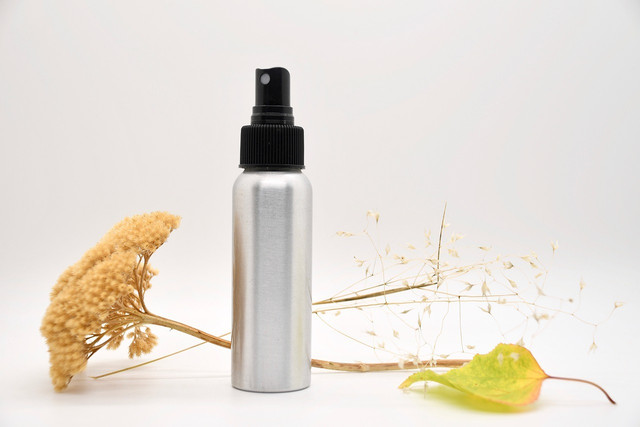


(Foto: CC0 / Pixabay / felicialaskowski)
If you have aerosol hairsprays still sitting around your home, don’t take this as a sign to throw them away! This does not mitigate the pollution of the aerosols if you just don’t spray them yourself. The best thing to do is to actually continue using your aerosol hairspray, just try to use as little as possible and avoid unnecessary reapplications. Once the can is fully empty, separate the plastic from the aluminum and recycle accordingly.
If you’re fresh out of hairspray, now’s the time to look into purchasing a non-aerosol alternative. They use a pump mechanism, which means far less of the product is lost to the surrounding atmosphere, and you are less likely to breathe any of it in.
Many non-aerosol sprays are suitable for all hair types and will have different levels of hold, just like their aerosol counterparts. However, these alternatives often don’t provide such a stronghold, so you may have to forgo your Mohawk if you’re looking to make the switch.
TIP: there are also many non-hairspray alternatives! Try out a DIY sea salt spray for beautifully textured waves, or an aloe vera spray to smooth out frizz.
In Conclusion: Is Hairspray Bad for Your Hair?
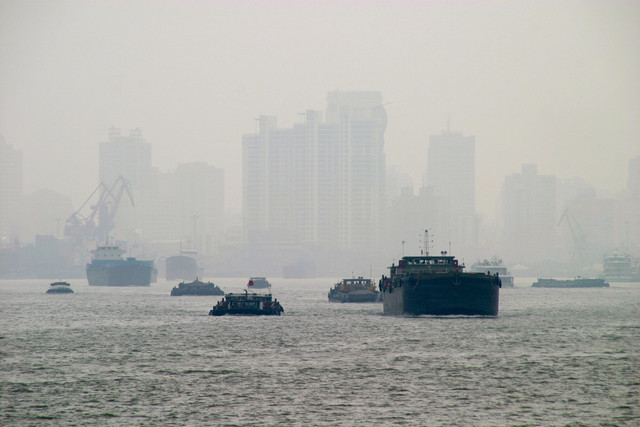


(Foto: CC0 / Pixabay / Peggy_Marco)
We cannot continue to ignore the damage aerosols cause and the waste they emit into our environment. However, it is important that we place the impact of aerosols in context. As briefly stated before, aerosols are currently only an increasing cause for concern in major cities who have been consistently improving their air quality for a number of years. Emissions caused by consumer products, such as hairspray, are only of note because other air pollutants, from transport, for example, have fallen so significantly.
This does not mean the air quality is good, it just means it’s less bad than it was. Because of the high density of people living in these areas, the air pollution from aerosols is highly concentrated and is therefore more dangerous to both the environment and social health.
Yet, there are parts of the world where air pollution from factories and exhausts pose an extreme threat to health and the environment, massively overshadowing the harms done by aerosols. In these cities, calling for everyday folk to switch to non-aerosols, realistically, won’t have an immediate effect when looking to improve air quality overall. Deadly smogs which choke citizens are not caused by rogue hair stylists, nor will they likely ever be.
None of this is to say that we should just not care about the impact of aerosols. The pollution aerosols cause in these cites is much less noticeable in comparison, but it does still contribute to the overall problem. However, we should not shame those who stumble at the Sisyphusian task of trying to limit their own personal emissions when large companies and governments continue to flaunt ecological guidelines, and might even deny the climate crisis altogether.
Improvements are possible, especially in the hair and beauty industries where there continues to be a huge push for ethical consumption and sustainability. While here at Utopia we discourage the consumerist culture, the reality is that making informed choices about where you decide to spend your money is one of the most direct ways to motivate large corporations to challenge their bad habits. Make the switch to exclude aerosols from your household in whatever way works best for you; whether that’s cutting out hairspray, switching to roll-on deodorant, or making your own air fresheners, your actions matter.
Read more:
- 6 DIY Leave-in Conditioners With All-Natural Ingredients
- 4 Ways to Use Shea Butter for Your Hair
- How to Use Flaxseed Oil for Hair Care and Growth
Do you like this post?






